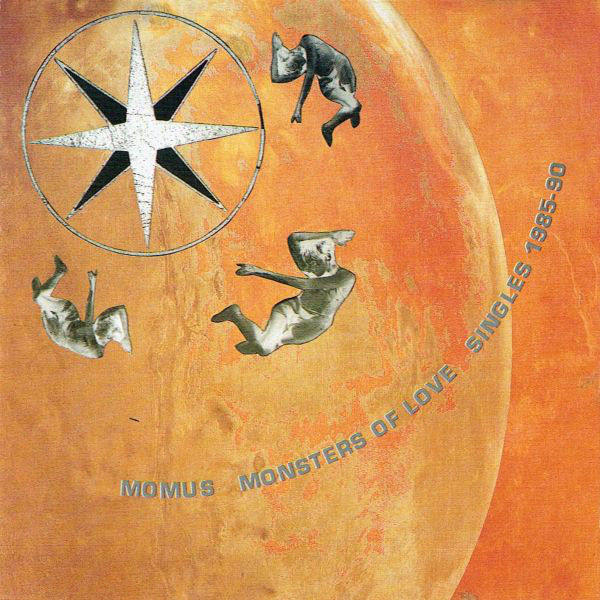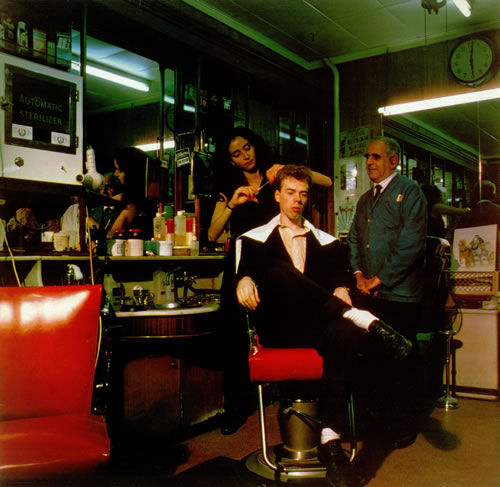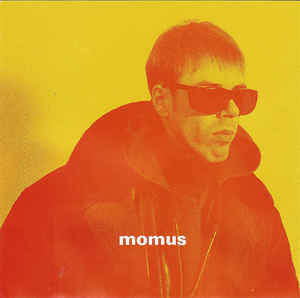Why should they admire us?... #11 Monsters of Love
- John Robinson
- Oct 25, 2019
- 5 min read
Updated: Oct 26, 2019
I am 99% certain that 1990 album Monsters of Love: Singles 1985 - 1990 was the first album I obtained by Momus, from an independent music store in Canterbury and on vinyl, in 1992. Having heard 'Nicky' on the radio, that makes "Morality is Vanity" the second Momus song I heard, and the one which sealed my fate. The fact that the same store sold cassette albums for £5 and had a reasonable stock of Momus was a bonus: I thus obtained Don't Stop the Night and Voyager. The other early albums took longer to acquire: I had to order them from Our Price and they were among my earliest CD purchases.* Yes, I did not have a CD player till then.
It feels like Momus was marking time at this point till the next album. He retreated somewhat from the British indie scene at this point, and moved into a flat in Cleveland St. London. Perhaps Creation had lost faith a little following the lack of commercial success from Don't Stop the Night, perhaps Momus was disenchanted. At any rate he now wrote and worked in an atmosphere of French and Continental pop, equipped with an Atari ST 1040 and Akai S900 Sampler, and worked on: amongst other things: his new project which would become Hippopotamomus.
In the meantime Creation released a compilation of his work in June 1990. The sleeve design is by Thomi Wroblewski, who also did the Tender Pervert cover: It's fairly abstract and the imagery suggests the threesomes sung about on the first EP, except all three of them are Momus (edit: It isn't Momus, it is a ballerina Thomi knew. It COULD be though.) revolving around what seems to be a set of compass points in front of an orange planet (or Sun?).
To call it a "Singles" compilation is a little misleading: the album contains two EPs totalling six songs, two new songs and one single with its B-side.

The album opens with a "new" song which I suspect existed in some form for many years, and is Morality is Vanity. This song absolutely hooked me. The form is music hall mixed with burlesque, and the theme is that the moral people of this world parade their morality as a cloak in the same way that the immoral display their vices:
"Why pimp to posterity? Why should they admire us?
All the heroes of Valhalla weigh less than a virus."
That's a sample of how concise, well crafted and laser sharp the lyrics of this song are. The discussion of crime as a fashion, of morality as a fashion just as vacuous, pricks the self-aggrandizing of those who are, apparently, "moral", but are no better than criminals in their parading of the habits they adopt. The message is that all behaviours are equally selfish in intent. The "Cave of the Golden Calf" that is mentioned was a real and infamous Cabaret which existed in Heddon Street, London, shortly before WW1.
Purely because of this song I sought out all of Momus' earlier work. Purely because of "Hairstyle" I sought out the latter work.
"Morality is Vanity" is followed by the three songs from "Beast with 3 Backs" and the three songs from "Murderers, The Hope of Women".
The other "new" song is Gilda. Written for a French singer called Jil Kaplan: I can find no evidence she recorded it. This is a fairly straightforward song about the character of Gilda who is a femme fatale played by Rita Hayworth in the film of the same name (Gilda). It uses quotes from the film and is again in a music hall idiom. Hate can be a very exciting emotion, she says. Your own reaction to the song is purely predicated on your knowledge and interest in the original film.
Gilda is followed by a mix of Hairstyle of the Devil. It's a shorter version than that on the album. I am guessing it is the radio edit, but I don't know that for sure. It suffers from the edit and lacks the breakdown section I discussed in the entry on that song.
The compilation ends with the B-Side to Hairstyle: Monsters of Love. This is the third song, after 'Nicky' and Morality is Vanity, which completely sold me to Momus. Or sold Momus to me, whichever way you wish to put it.
I don't even know why the song affects me so much. It starts with a simple bass figure that for some reason is an earworm for me: it suggests something important is happening, I think, something at least that requires attention: it is cinematic, in the same way that Monty Norman's bass intro to Bond films suggests something important is coming. The song is about a client meeting with a prostitute in a Marrakesh hotel room - I think. But the description suggests much more. Firstly, the whole middle eastern scenario brought to mind for me the scenes in Hellraiser where the puzzle box which summons Cenobites is sold to unwitting victims.. "what's your pleasure?"
Moreover the lady involved seems to have some kind of preternatural power. Speaking of Hellraiser, in Clive Barker's short story "Jacqueline Ess: Her will and testament" he writes about a bored housewife who gains the power to manipulate matter to her whim. When this power becomes overwhelming she commits suicide while making love by sharpening her lover's member to a point in order to pierce her heart. The lady in this song is compared to a spider releasing a fly, and I feel she is possessed of power herself. The act of lovemaking with her is described in perverse terms. The result of coupling with her is an insane breed of animal:
"From the siesta of Reason come monsters of love The horse-lizard, the lamb-badger The thrush-lemur, the wildcat-gazelle The crow-monkey, the bat-jaguar The dog-dromedary, the slug-whale".
This lyrical monstrousness is accompanied by washes of synthesizer noise and an effect something like a water-gong being struck to emphasise the drama of the events unfolding.
There was no way: on hearing this album: that I was not going to track down and consume whatever Momus I could. It was interesting, intellectual: possibly in ways I didn't (yet) understand, and sometimes felt relevant to my own (lack of) love life.
Writing a song for a French singer was very much the route Momus took at this point. For his next album, whether intentional or not, he would not pursue the commercialism that "Don't Stop the Night" had seemingly worshipped. Indeed it could be argued that the next album blocked off any such avenues, in the UK at least. The next entry will be about "Hippopotamomus".
* The very first CD I owned was from the student radio station at Canterbury Christ Church College, and was Roger Eno / Kate St. John's The Familiar, for what it's worth.






Comments